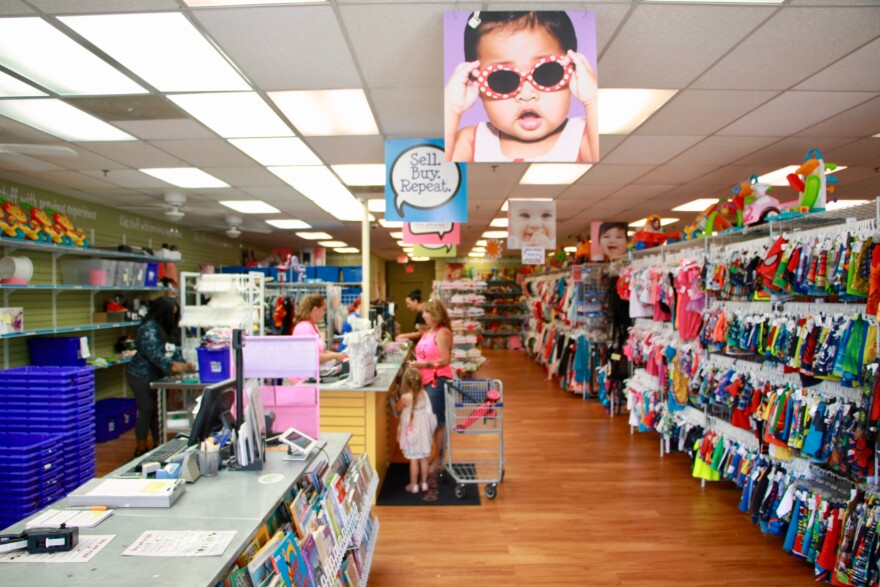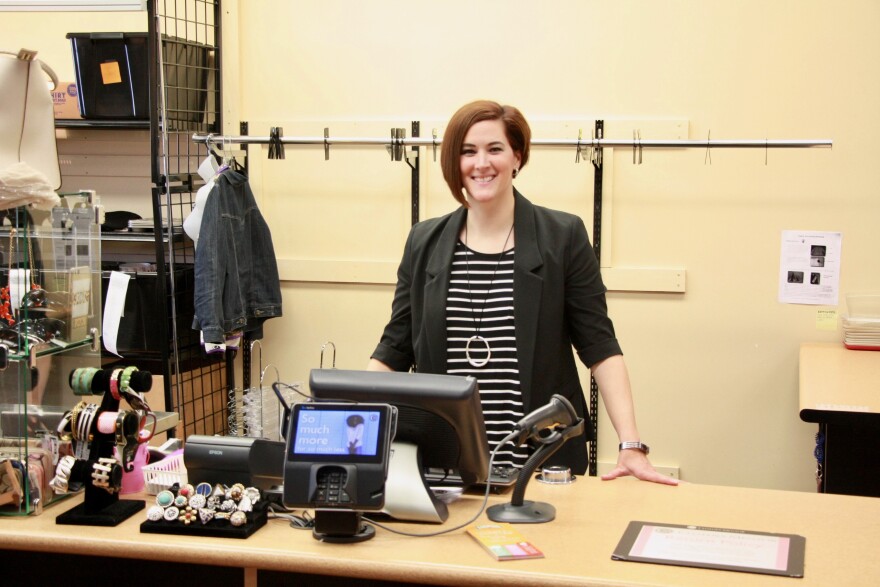It takes a lot less in Virginia to charge a thief with a felony than anywhere else. But some argue the punishment doesn’t fit the crime. Jordy Yager takes us inside the debate over the state’s felony larceny threshold.
Since Lori Janke and her twin sister opened a pair of second-hand stores in Newport News, the biggest threat to their bottom line has been theft. Like most small retailers, they allocate at least 1 percent of their budget to larceny. Over the last six years, Janke says they’ve caught 9 instances of people stealing.
“It’s been everything from, we had a high end stroller in the store, which we were selling for $300, so retail it’s a $600-$800 stroller, she just walked in, put her stuff in it, pushed it right out,” says Janke.
Janke’s sought to prosecute every one of those thefts. But exactly what type of crime someone gets charged with—a misdemeanor or a felony—is a question the state’s been grappling with. Currently in Virginia, if you steal something worth more than $200, it can be prosecuted as a felony. Less than $200? It’s charged as a misdemeanor. This is known as the “felony larceny threshold.” Every state has one, but Virginia’s is tied with New Jersey’s as the lowest in the country.
“I think when the law was first developed that was probably—$200 was a lot of money,” says Murtagh.
Liz Murtagh is the public defender for Charlottesville and Albemarle County. And she’s right, Virginia’s threshold was created in 1980. By inflation alone, that $200’s worth nearly $600 today.

“They could become a convicted felon, which has all sorts of collateral consequences to it,” says Murtagh. “Whereas if the threshold was higher, like $1000, that’s more reasonable. Because the basis is, it should be something that’s egregious, something that has a lot of value…And that to me—it needs to be changed, it should have been changed a long time ago.”
Murtagh’s not alone. For the first time, the state Senate earlier this year passed a bill that would have raised the felony larceny threshold to $500. Traditionally Republicans have opposed these efforts, but of the 28 senators voting to raise it this year, nine were Republican. Nevertheless, the measure then went to the Republican-controlled House Courts of Justice Committee, where it died.
Republican Delegate Rob Bell sits on that committee.
“Why should we make it easier for people who steal to continue stealing in Virginia?” says Bell. “And so we have a lower crime rate than many of the states, we think it’s a good thing, we like to hold people accountable when they commit crimes, we think that’s a good thing. And so this is an effort to say, if you’re going to steal an amount like that, we think you should be held accountable. We think the punishment should track that.”
Another proponent of keeping the threshold at $200 is the Virginia Retail Federation. According to the non-profit Virginia Public Access Project, the group’s given Bell $5,200 since 2004, and more than twice that amount to the chairman of the House Committee that killed the bill. Bell is expected to become committee chairman next year.
Jodi Roth handles the group’s government affairs. She points to California’s recent move to raise its threshold to $950. The Associated Press found that afterwards shoplifting from major retailers increased 15%.
“There is evidence and there is proof out there that it is a deterrent and for our members they just have—they struggle really hard with the thought of saying, ‘Okay, you can steal more from me’,” says Roth.
But a recent Pew Charitable Trust study found that raising larceny thresholds does not increase the rate of theft. The study spanned 12 years, and compared the crime rates of 28 states that recently raised felony thresholds to 22 states that didn’t.
Regardless, both Bell and Roth say prosecutors often reduce felonies to misdemeanors if it’s a person’s first offense. If it’s your second or third, well, that’s when a felony comes on the table. And that’s exactly what happened to Kelvin almost 25 years ago. Growing up in a low-wealth community, he said, opportunities to earn a legal living were hard to come by.

“And so to survive, we would do that,” says Kelvin. “And back then, you could take stuff from a store, take it back to another store, I mean the same store but in a different place, and you would get the money back, and so that was a means of survival, whether it be through drug abuse or just trying to eat, or just trying to make a way for yourself that was a way that a lot of people survived back in the early 80’s and late 80’s.”
Kelvin says lawmakers should focus more on the poor quality of life conditions that lead people to steal in the first place. What’s more, he explains, is that in Virginia, felons lose their right to vote, they’re often denied housing and education opportunities, and they have a harder time finding work. All of these only incentivize more criminal behavior.
“When they do get released they just go out and do something real silly again and go back to prison because they’re more comfortable in prison than they are in society because society has made them like a stigma, where they can’t get a job, they can’t find housing, so they say, well damn, I might as well go to prison. Least there I got three meals, and a place to stay,” says Kelvin.
The current felony threshold amount is an antiquated law, says Kelvin, but that’s what you get when you have antiquated thinking by lawmakers. After a long drawn out fight, Kelvin recently got his right to vote restored, and come November, for the first time in decades, he plans to use it.
This report, provided by Virginia Public Radio, was made possible with support from the Virginia Education Association.

